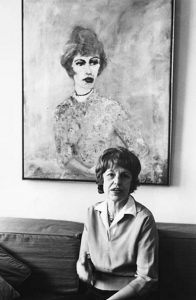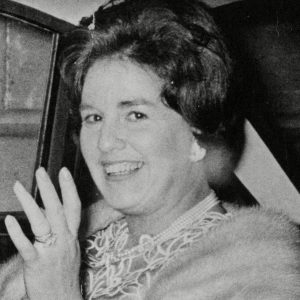Podcast: Play in new window | Download (Duration: 1:41:00 — 103.8MB) | Embed
Subscribe: Spotify | TuneIn | RSS | More
For the last episode of 2022, I begin a series of episodes which was one of the reasons I began Countermelody in the fall of 2019: a celebration of great singing from great singers in the late years of their lives and careers. In the early years of the recording industry, a long-retired artist such as Adelina Patti would consent to leave recorded documents of their voices for future generations to experience. Oftentimes a cherished artist will make a guest cameo appearance at an important event (think of Leontyne Price coming out of retirement at age 74 and singing “God Bless America” at the September 30, 2001 memorial concert at Carnegie Hall). Other times, artists like Johnny Mathis, Regina Resnik, or Helen Donath, simply never retire, but continue to bestow their artistry upon us decade after decade. Sometimes, as is the case of Lotte Lenya, a performer finds herself later in her life on a mission which demands that she resume performing, in Lenya’s case, as a means of securing the musical legacy of her late husband Kurt Weill. There is also, in the case of someone like Alberta Hunter or Elisabeth Welch, the thrill of a jazz or pop artist at the end of her life experiencing a career resurgence at the end of a long life. In the classical world, artists late in their lives can still give extraordinary performances of art song, which makes fewer demands on their voices than taxing operatic roles, while allowing full display of their deepened artistry and experience. There are also operatic roles specifically designed for the more mature artist: roles like Schigolch in Lulu, or the Countess in Pique-Dame, among many others, which are sampled here in performances by Hans Hotter and Rita Gorr, respectively. There are also those rare and exceptional artists who are able to perform movingly even into their nineties, like the Ukrainian bass Mark Reizen, or the verismo soprano Magda Olivero; or after having suffered catastrophic physical setbacks, like the German tenor Karl Erb, the African American baritone Robert McFerrin, or the pop icon Joni Mitchell. These artists (along with many others) and this topic seems deeply appropriate as 2022 draws to a close and we look forward to the inevitable challenges, the blank slate, the looming horizon, of the year to come.
Countermelody is a podcast devoted to the glory and the power of the human voice raised in song. Singer and vocal aficionado Daniel Gundlach explores great singers of the past and present focusing in particular on those who are less well-remembered today than they should be. Daniel’s lifetime in music as a professional countertenor, pianist, vocal coach, voice teacher, and journalist yields an exciting array of anecdotes, impressions, and “inside stories.” At Countermelody’s core is the celebration of great singers of all stripes, their instruments, and the connection they make to the words they sing. By clicking on the following link (https://linktr.ee/CountermelodyPodcast) you can find the dedicated Countermelody website which contains additional content including artist photos and episode setlists. The link will also take you to Countermelody’s Patreon page, where you can pledge your monthly support at whatever level you can afford. Bonus episodes available exclusively to Patreon supporters are currently available and further bonus content including interviews and livestreams is planned for the upcoming season.


